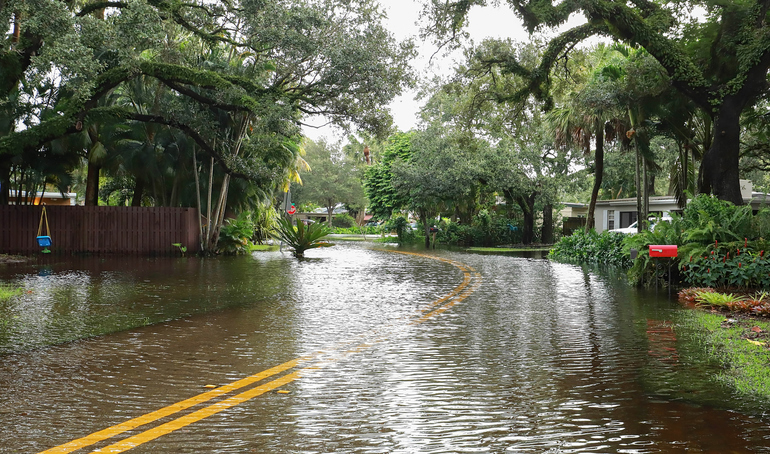Understanding NFIP and Private Flood Insurance Coverages
Flood insurance will help you to protect your house and belongings from water damage brought on by floods. Homesowners should be aware of the different types of flood insurance plans that are provided as flooding events get more frequent all throughout the country, particularly private flood insurance policies and the National Flood Insurance Program (NFIP). This article will go over both options, thereby guiding your choice of flood coverage from a knowledge perspective.
Describe NFIP Flood Insurance?
Providing American companies and homes with fairly priced flood insurance, the National Flood Insurance Program (NFIP) is a government-supported project. The program is aimed to make flood insurance available to persons living in flood-prone areas especially in areas where private insurance companies could be reluctant or unable to offer coverage.
Participating localities following federal floodplain management rules have NFIP flood insurance available. The program helps you rebuild after flooding occurrences by providing coverage for the contents of your house as well as its structure.
Key Features of NFIP Coverage
Building property coverage and contents coverage are the two main forms of coverage the NFIP private flood insurance provides.Building property coverage covers your home’s physical structure—that of the foundation, walls, roof, and plumbing among other elements. It also addresses permanently placed in your house appliances, HVAC systems, and electrical systems.
Conversely, contents coverage addresses your personal items—including furniture, clothes, gadgets, and other valuables—that live within your house. Content coverage is usually limited, though, and valuable objects like art or jewelry can necessitate for extra policies or riders.
The NFIP does have coverage limits, hence in case of extreme floods your property may not be completely protected. For the structure, the NFIP usually covers up to $250,000; for personal property, it covers $100,000; therefore, if you have large assets or live in a region likely to experience frequent flooding, you could find yourself short.
The Rise of Private Flood Insurance
Although NFIP flood insurance is somewhat common, some homeowners are looking at private flood insurance plans instead. Along with extra benefits and flexible terms, private insurers can provide coverage above the NFIP’s limitations. Private businesses rather than the government supply these policies, which can be tailored to fit the requirements of the homeowner.
Private flood insurance policies often include more thorough protection for the structure and contents of the house as well as additional coverage limits. Furthermore, depending on the location, risk considerations, and value of the property, private insurers could provide more reasonable rates.

Benefits of Private Flood Insurance
Private flood insurance coverage have various benefits. First of all, they usually offer more coverage limitations than the NFIP so homeowners may completely safeguard their goods and property. For people with valuable residences or pricey personal belongings specifically, this is crucial.
The quicker claims process of private flood insurance is also another benefit. Many private insurers have more effective protocols in place, which can lead to faster response times should you have to submit a claim. Particularly in the wake of a flood event, this might be quite advantageous.
Furthermore providing more customizing choices than the NFIP are private insurers. Homeowners can customize their insurance to fit their particular needs, including adding coverage for basements or luxury goods not covered under an NFIP policy. Private flood insurance also sometimes has a shorter waiting time before coverage starts. Although NFIP rules usually allow for a 30-day waiting period, private insurers can provide instant coverage once the insurance is bought, which can be rather important during flood season or should a flood event be approaching.
Private flood insurance can also provide more coverage for basements and other buildings like garages. For these locations, the NFIP usually offers more restricted coverage; so, for people with large extra structures on their land, private policies may be a preferable choice.
Comparison Between NFIP and Private Flood Insurance
Private flood insurance as well as NFIP offer benefits and drawbacks. Your location, the value of your house and personal belongings, and your desired degree of coverage will all influence the policy you choose.
NFIP flood insurance is usually a must-have for those residing in high-risk flood zones, particularly since homeowners with federally sponsored mortgages in flood-prone areas are required by law. For individuals seeking faster claims, more flexibility, and broader coverage limits, though, private flood insurance may be a better fit.
The type of coverage you require, the flood risk of the property, and the policies of the insurer will all affect the price of private flood insurance. Although private policies may provide greater value for some high-risk residences or properties with substantial assets, NFIP flood insurance can be more reasonably priced.
Why Consider Both?
For best protection, some homes choose to carry both private flood insurance and NFIP coverage. This can be particularly helpful if the NFIP coverage limits don’t offer sufficient defense for your personal possessions and house. Combining both insurance can help you to improve your whole coverage and protect your property against a greater spectrum of flood-related hazards.
Remember that the cost of a dual-policy strategy will differ based on your coverage requirements; so, make sure to thoroughly consider the advantages and drawbacks.
Conclusion
Protecting your house from flooding depends on flood insurance, which is absolutely essential, thus knowing the differences between NFIP and private flood insurance is essential to make the best decision. Private flood insurance coverages provides more flexibility, greater coverage limits, and faster claims processing even if NFIP plans are generally accessible and reasonably priced.
Whether you decide on NFIP, private insurance, or a mix of both, first consider your particular risk factors and needs. Flood Insurance HQ can help you choose the correct coverage for your house if you require help negotiating flood insurance choices.














Post Comment